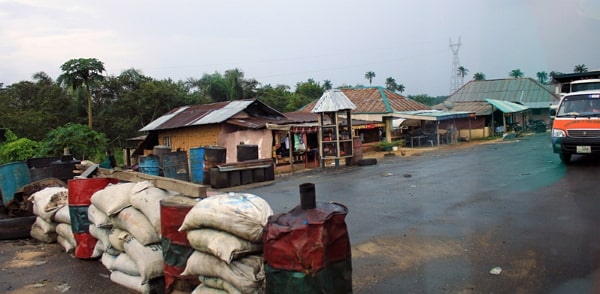
Nigeria’s Inflation Caused By Closure of Land Borders and Insecurity-World Bank
The World Bank says that the closure of Nigeria’s land borders since August 2019, insecurity in the North, and farmer-herder clashes, among others, were responsible for the skyrocketing inflation in the country.
The World Bank said it would consider Nigeria’s new $1.5billion loan request in the coming week to help boost Africa’s largest economy.
According to Reuters, the World Bank country director in Nigeria, Shubham Chaudhuri, stated these in Abuja at the launch of the latest World Bank Nigeria Development Update.
Shubham said the $1.5 billion loan request would be tabled next week before the World Bank board for approval.
Shubham said: “We recognise how much Nigeria has done. There needs to be a little bit more. The onset of the COVID-19 crisis has made the task much more challenging and urgent because of the severity of the economic downturn and the decline in fiscal resources. In other words, while COVID-19 will hit incomes across all countries, Nigeria is expected to suffer twice as much. Because Nigeria’s growth has been uneven and volatile, once we adjust for inflation, we find that for Nigeria going back to 2010 is equivalent to going back to the 1980s.“
The country director further explained that “before COVID-19, rising food prices were already putting pressure on inflation due to insecurity in the North, conflicts between farmers and herders in the middle belt, and Nigeria’s closure of land borders since August 2019. Then, on top of these, pandemic related disruptions in value chains and production processes further increased inflation.“
In a statement issued after the Nigeria Development Update release, the World Bank raised the alarm that despite the current recession, Nigeria risks sinking deeper into recession in the next three years.
The statement reads, “In the next three years, an average Nigerian could see a reversal of decades of economic growth and the country could enter its deepest recession since the 1980s. In the absence of measures to mitigate the impact of the COVID-19 crisis, the number of poor could increase by 15 to 20 million by 2022.“
.

